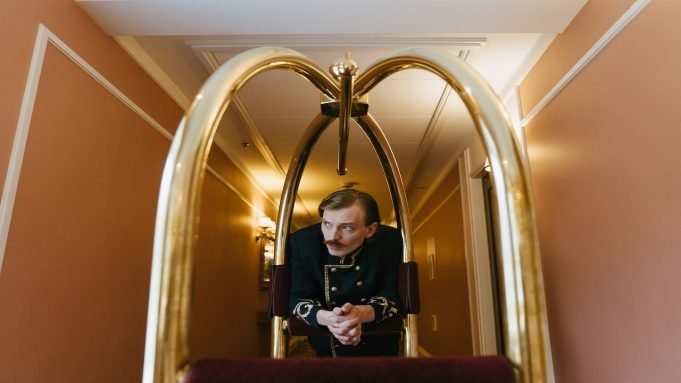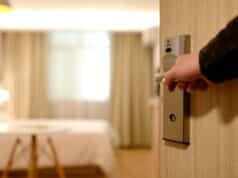The hotel industry is a vibrant and competitive space where guest satisfaction and operational efficiency are binding forces that hold the world of travel together. In this fast-paced world, hoteliers strive to deliver exceptional experiences and simultaneously optimize their day-to-day operations.
To achieve this delicate balance, it’s essential to implement a robust hospitality management system that streamlines all aspects of hotel operations. From front office management to housekeeping, food and beverage operations to staff management, every department plays its own role in creating a flawless guest experience.
So, let’s explore some practical strategies and actionable tips that can help optimize hotel operations, enhance efficiency, and ensure guest satisfaction. By implementing these techniques, all hotels can elevate their service quality and position themselves as leaders in the industry.
Streamlining Front Office Operations
The front office is the face of any hotel that creates the first impression for guests. This is why efficient front office operations are important for providing seamless check-in and check-out experiences, ensuring accurate reservations, and facilitating effective communication with guests. By streamlining these operations, hotels can enhance guest satisfaction and optimize their efficiency. Here are some key strategies to achieve this:
Efficient Check-in and Check-out
Implementing automated hotel check-in kiosks or mobile check-in options can significantly reduce wait times and make the experience more convenient. Also, training front desk staff to handle check-ins swiftly and providing them with access to guest information and preferences can further streamline the process.
Implementing Automated Reservation and Booking Systems
Utilizing a comprehensive property management system (PMS) enables hotels to automate the reservation process and manage guest profiles. This not only saves time but also minimizes the risk of overbooking and errors.
Leveraging Technology for Guest Communication and Feedback
Utilizing guest messaging platforms or chatbots will provide instant responses to guest inquiries and requests. Also, actively seeking guest feedback through post-stay surveys or online reviews can provide hotel management with some valuable insights for continuous improvement.
Staff Training and Empowerment for Excellent Customer Service
Investing in comprehensive training programs equips front office staff with all the necessary skills and knowledge to deliver exceptional customer service. Empowering them to handle guest complaints effectively and resolve issues promptly will lead to a positive and memorable stay for guests.
Enhancing Housekeeping Efficiency
Housekeeping is a critical component of hotel operations. It directly affects guest satisfaction and the overall reputation of the establishment itself. Efficient housekeeping processes ensure clean and well-maintained rooms and a comfortable environment. By improving housekeeping efficiency, hotels can elevate their service standards and provide a superior guest experience. So, here are key strategies to achieve this:
Implementing a Comprehensive Housekeeping Management System
Utilizing a digital housekeeping management system allows for the efficient assignment of tasks, tracking of room status, and communication between housekeeping staff and other departments. This streamlines operations and facilitates smooth workflow management.
Optimizing Room Cleaning Schedules and Processes
Developing well-defined cleaning schedules based on occupancy rates and guest preferences is a great way to optimize room cleaning schedules. Implementing efficient room cleaning processes can maximize productivity and maintain cleanliness standards. This includes:
- Utilizing standardized checklists.
- Employing eco-friendly cleaning products.
- Establishing efficient linen and laundry management procedures.
These processes can help all hotels drastically improve their guests’ satisfaction.
Investing in Modern Cleaning Equipment and Supplies
Upgrading to advanced cleaning equipment and supplies can significantly improve housekeeping efficiency. High-quality vacuum cleaners, eco-friendly cleaning agents, and all kinds of ergonomic tools can streamline the cleaning process and improve overall productivity.
Maximizing Food and Beverage Operations
Food and beverage operations are a significant revenue generator for hotels, and optimizing these operations can lead to increased profitability and guest satisfaction. Maximizing efficiency in this department involves careful planning and attention to detail. By implementing strategies to streamline food and beverage operations, hotels can enhance the dining experience and drive revenue growth. So, with that in mind, here are some good approaches to consider:
Streamlining Kitchen Processes and Workflows
Evaluating the kitchen layout and workflow can help with identifying areas for improvement. Optimizing the arrangement of equipment, the quality of ingredients, and workstations can minimize time wastage and enhance productivity. Implementing standardized recipes and efficient cooking techniques will ensure consistent quality and reduce preparation time.
Implementing Inventory Management Systems
By utilizing technology-driven inventory management systems, hotel management can monitor stock levels, track ingredient usage, and streamline ordering processes. This helps hotels in many ways, such as:
- Preventing stockouts
- Minimizing wastage
- Maintaining cost control
Regularly analyzing data will identify trends and optimize inventory levels based on demand patterns.
Offering Diverse Menus and Dietary Options
Catering to a wide range of guest preferences and dietary requirements can be achieved by offering diverse menu options. Incorporating local flavors and trending culinary trends will provide a unique and memorable dining experience for all guests. So, ensuring clear communication channels between the kitchen and other staff will help accommodate special requests and ensure smooth service.
Ensuring Efficient Room Service and Restaurant Operations
Implementing efficient order-taking and delivery systems for room service ensures prompt and accurate service to guests. And, in the restaurant, optimizing seating arrangements, streamlining the ordering process, and providing staff with thorough training to deliver attentive and personalized service will completely change people’s perception of the hotel. Continuously monitoring service quality and gathering guest feedback can help identify areas for improvement.
Conclusion
By implementing these strategies, hotels can achieve the dual objectives of guest satisfaction and operational efficiency with ease. They can provide a seamless and memorable experience for guests while driving revenue growth and maintaining a competitive edge in the market.
In conclusion, by focusing on guest satisfaction and the implementation of cutting-edge practices, hotels can unlock their true potential and establish themselves as leaders in the ever-evolving hospitality industry.














